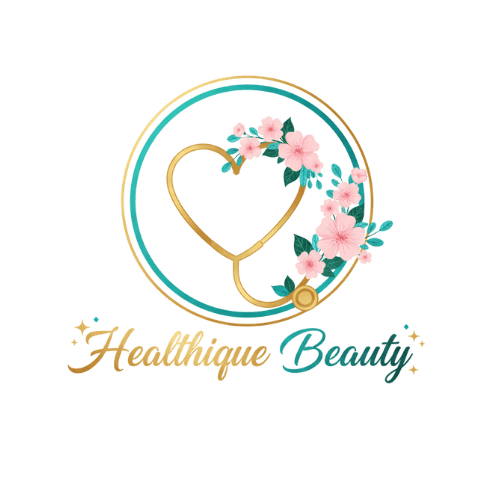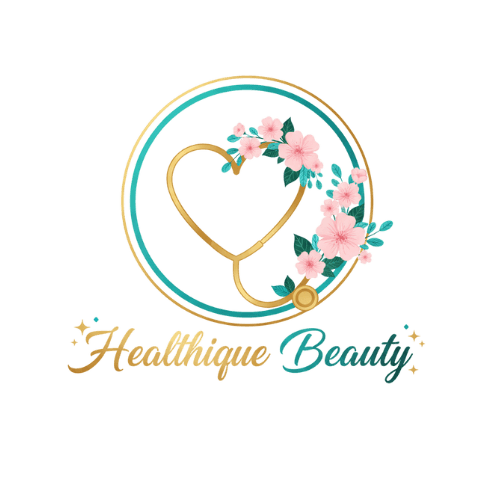
Top Essential Vitamins Every Woman Needs for Health, Beauty, and Energy
Top Essential Vitamins for Women’s Health: A Complete Guide
Women’s bodies go through many unique changes throughout life — from adolescence to pregnancy, and later menopause. Each stage brings different nutritional needs. Vitamins are vital in maintaining energy, hormonal balance, bone strength, skin glow, and overall health. Unfortunately, many women don’t get enough of the essential vitamins through diet alone, which can lead to deficiencies and long-term health issues.
This article explores the most important vitamins for women, their roles, and the best food sources, along with tips for maintaining optimal levels naturally.
Why Vitamins Are Crucial for Women
Vitamins are micronutrients, meaning the body needs them in small amounts. Yet their impact is huge. They support:
Hormonal balance
Healthy pregnancy and fertility
Bone and heart health
Strong immunity
Skin, hair, and nail health
For women, who face unique challenges such as menstrual cycles, iron loss, and the effects of menopause, vitamins play an even more critical role.
Vitamin D is essential for bone health, as it helps the body absorb calcium. Women are especially vulnerable to vitamin D deficiency, which increases the risk of osteoporosis.
Benefits:
Maintains strong bones and teeth
Supports immune health
May help balance mood and reduce risk of depression
Sources:
Sunlight exposure
Fatty fish (salmon, mackerel, sardines)
Egg yolks
Fortified dairy or plant milk
Tip: A blood test can determine if you need supplementation.
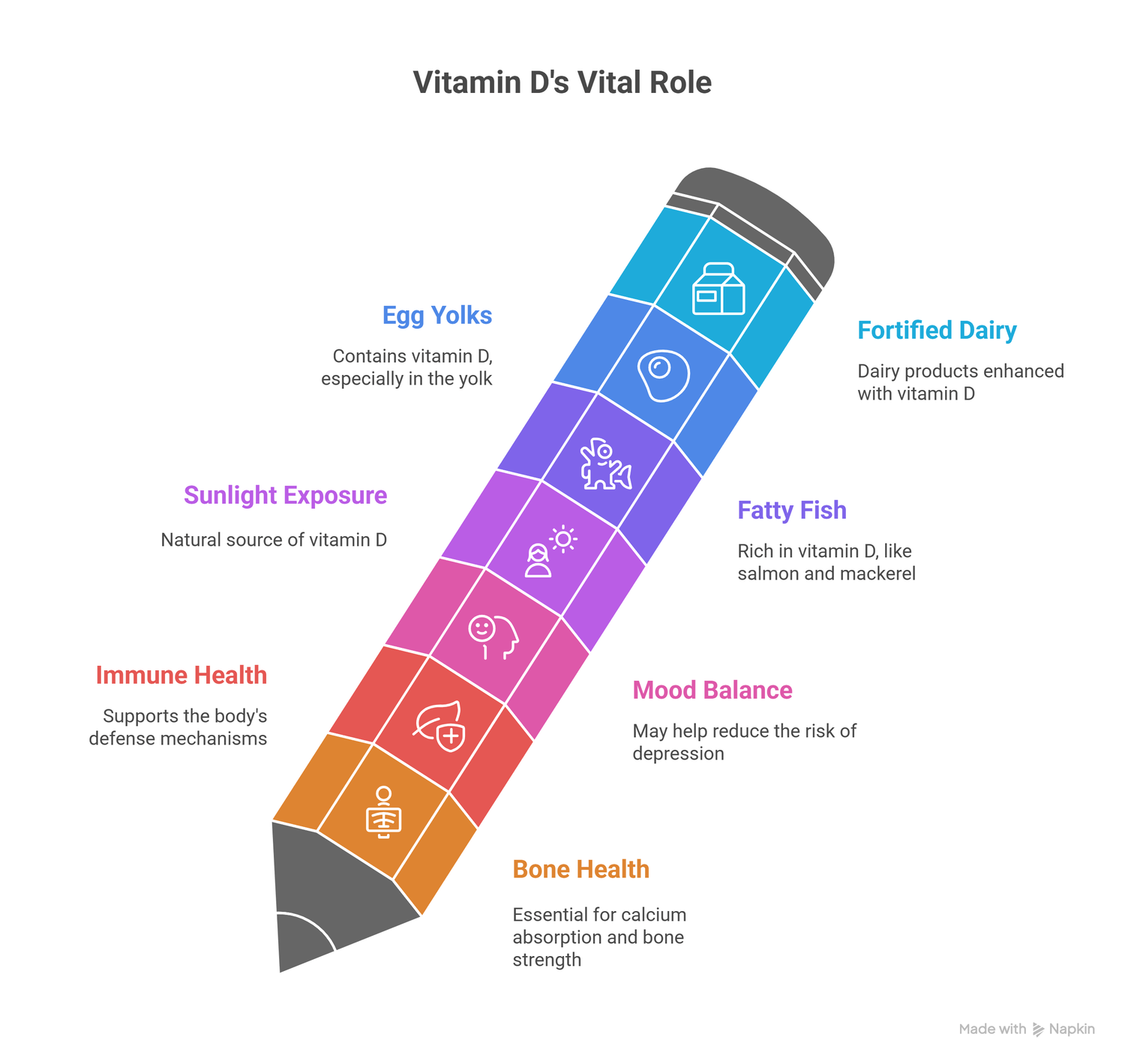
2. Vitamin B12 – Energy and Nerve Health
Vitamin B12 is vital for red blood cell formation and nervous system function. Deficiency is common in women who follow vegetarian or vegan diets.
Benefits:
Boosts energy and prevents fatigue
Supports brain function and memory
Prevents anemia
Sources:
Lean meats, poultry, fish
Dairy products
Eggs
Fortified cereals or plant-based milk
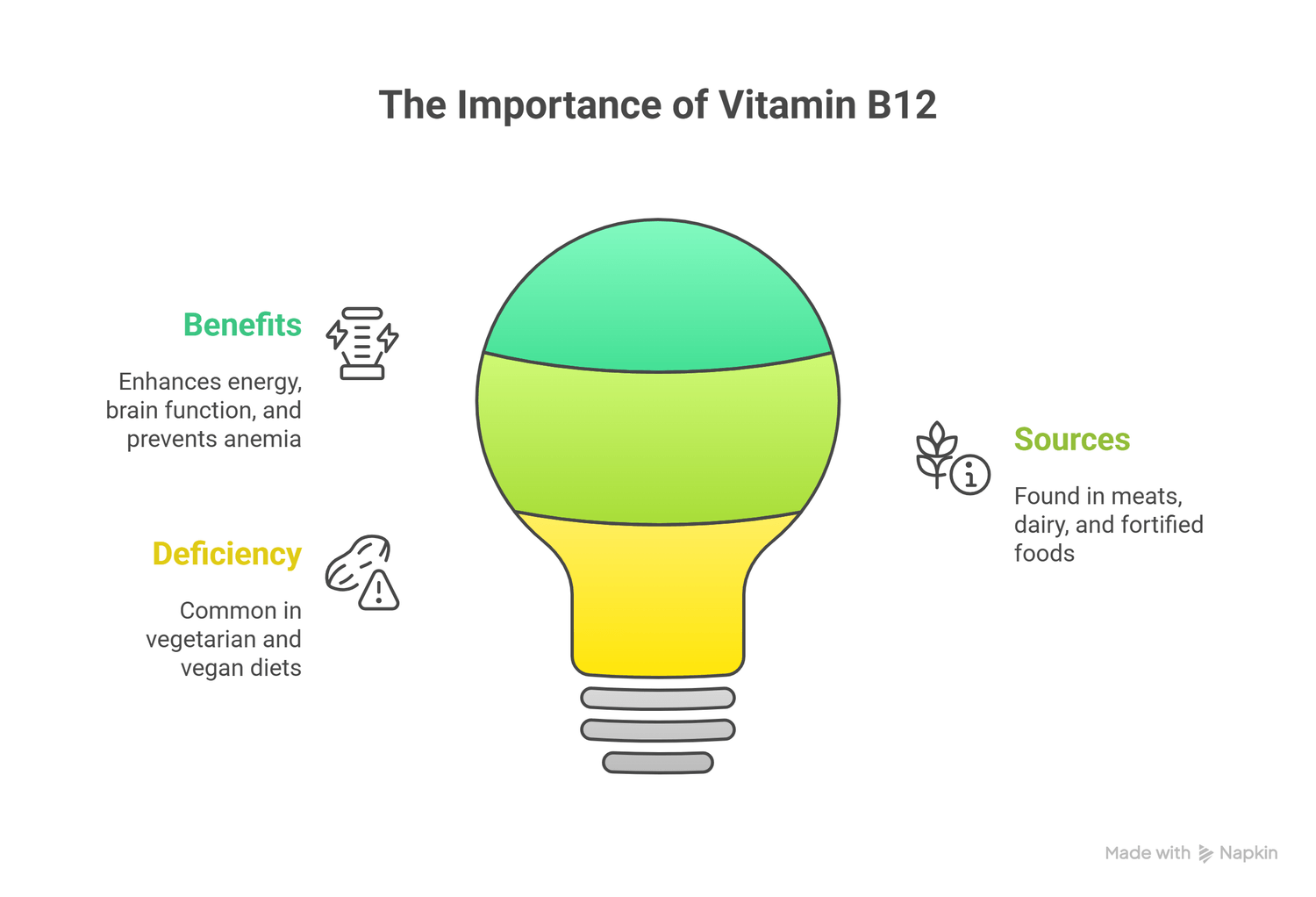
3. Folate (Vitamin B9) – Fertility and Pregnancy Health
Folate is especially important for women of childbearing age, as it prevents neural tube defects during pregnancy.
Benefits:
Supports cell growth and DNA formation
Vital for healthy pregnancy
Reduces risk of birth defects
Sources:
Leafy greens (spinach, kale)
Lentils and beans
Avocados
Citrus fruits
Tip: Many doctors recommend folic acid supplements before and during pregnancy.
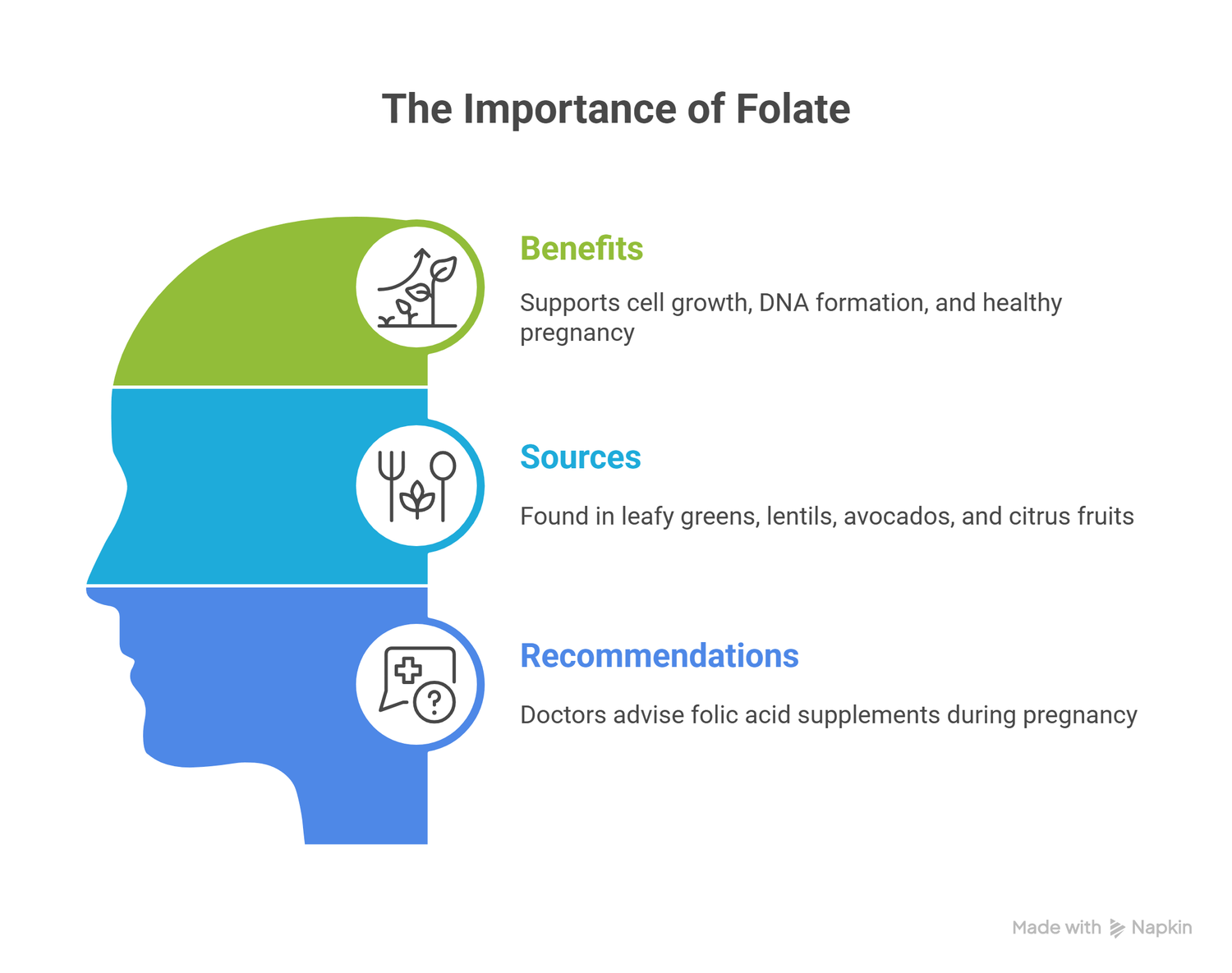
4. Vitamin C – The Skin Protector
Vitamin C is a powerful antioxidant that fights free radicals and supports collagen production.
Benefits:
Promotes glowing skin
Strengthens immunity
Aids in iron absorption
Helps wounds heal faster
Sources:
Citrus fruits (oranges, lemons)
Strawberries, kiwis
Bell peppers
Broccoli
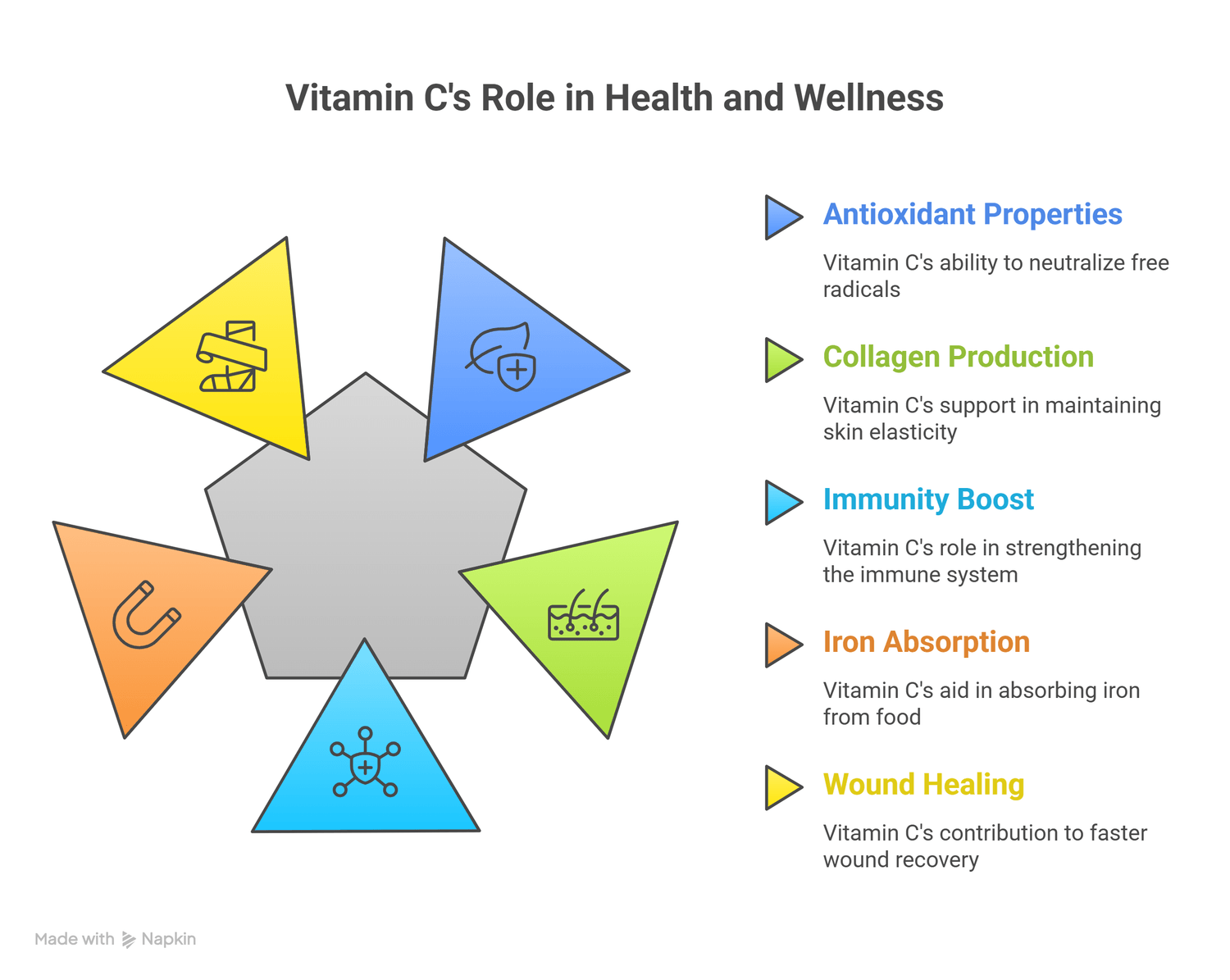
5. Vitamin A – Vision and Reproductive Health
Vitamin A is important for eye health and also supports reproductive functions.
Benefits:
Improves night vision
Maintains healthy skin and mucous membranes
Supports fertility and reproductive health
Sources:
Carrots, sweet potatoes, pumpkins
Leafy greens
Liver (in small amounts)
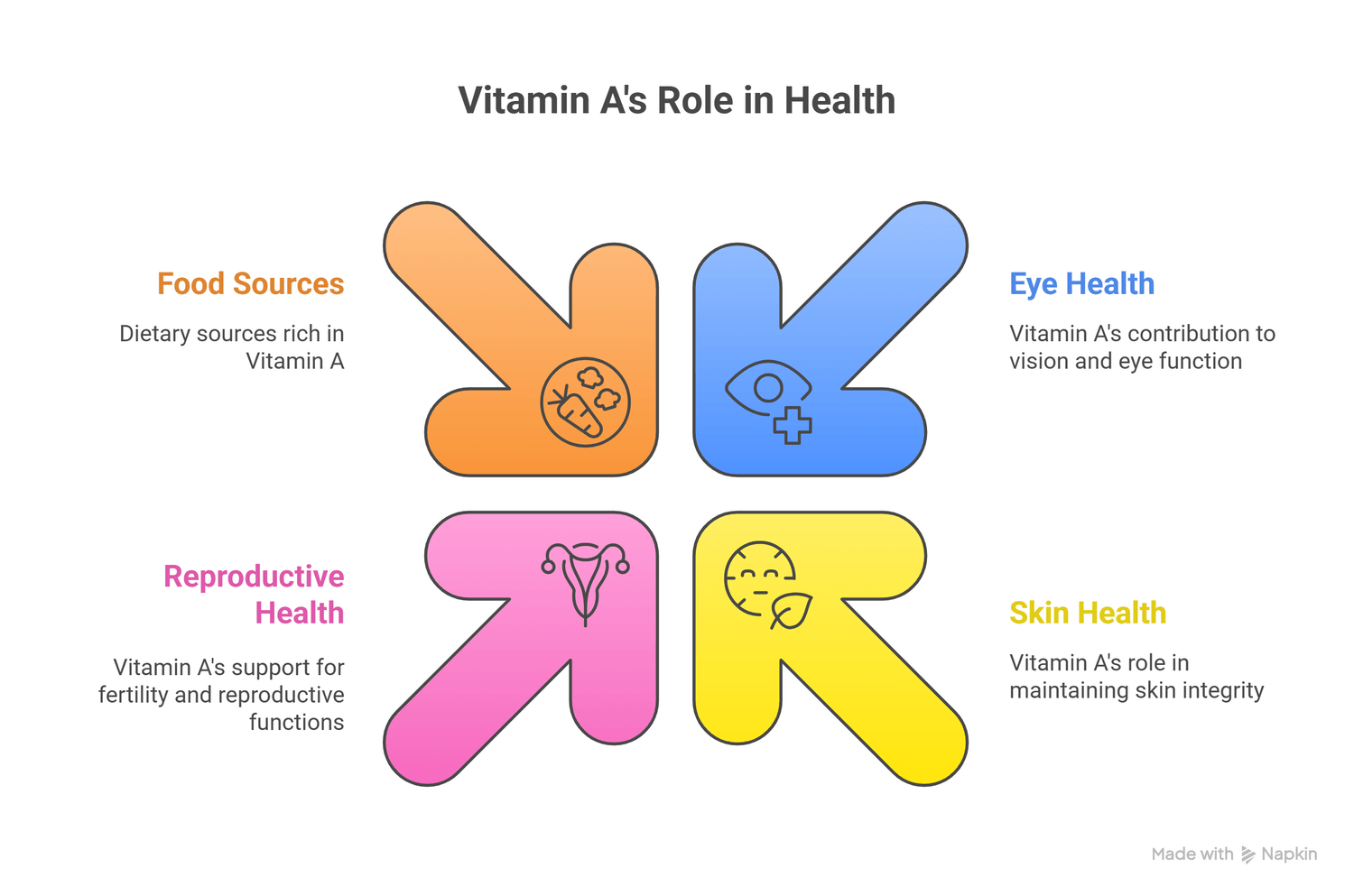
6. Vitamin E – The Antioxidant Shield
Vitamin E protects cells from oxidative stress and helps keep skin youthful.
Benefits:
Acts as a natural antioxidant
Promotes healthy skin and hair
Supports immune function
Sources:
Nuts and seeds (almonds, sunflower seeds)
Spinach
Avocados
Olive oil
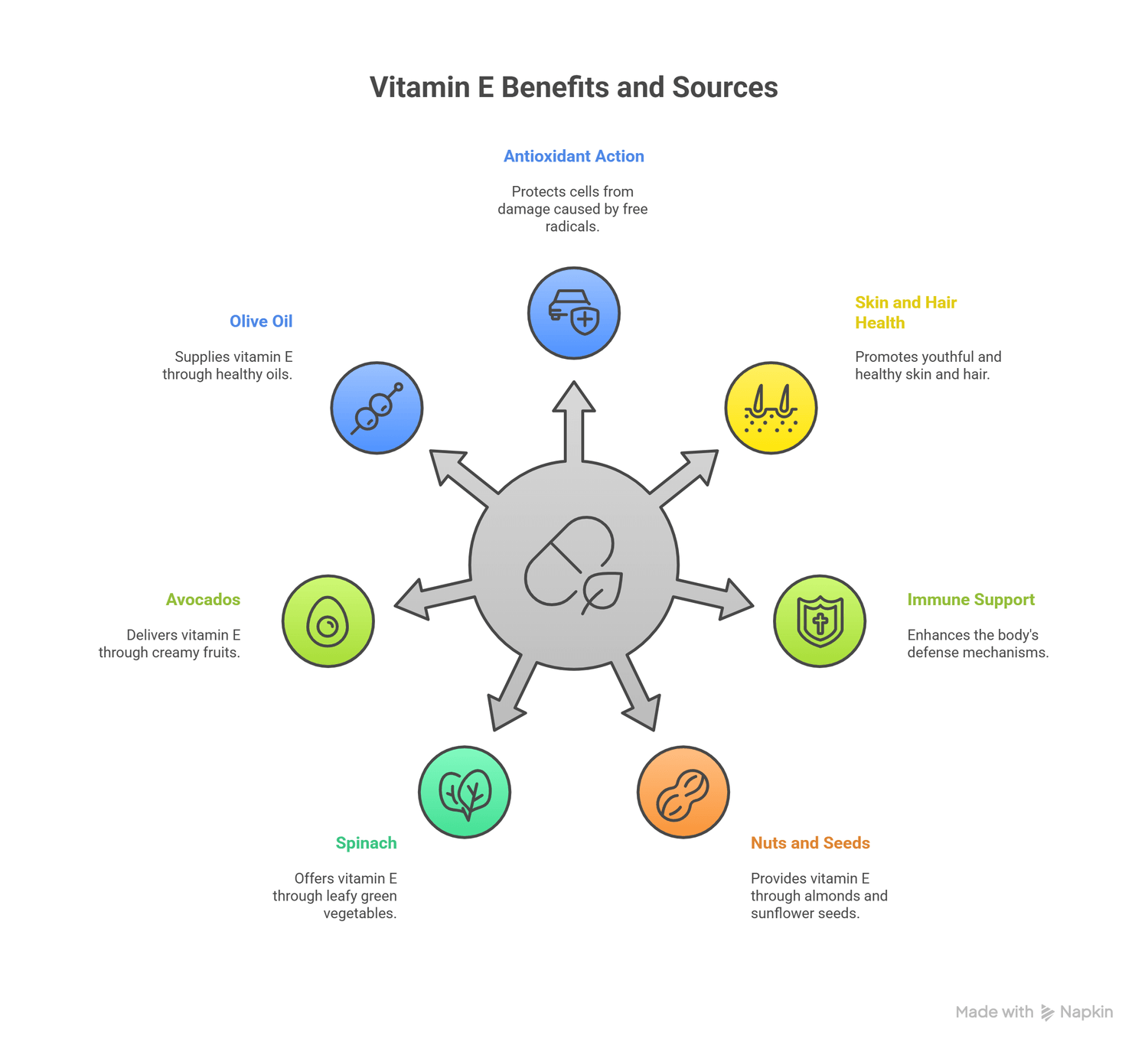
7. Vitamin K – Bone and Heart Health
Vitamin K works with calcium and vitamin D to protect bone health, especially important for women at risk of osteoporosis after menopause.
Benefits:
Strengthens bones
Helps with proper blood clotting
Supports heart health
Sources:
Kale, broccoli, spinach
Brussels sprouts
Cabbage
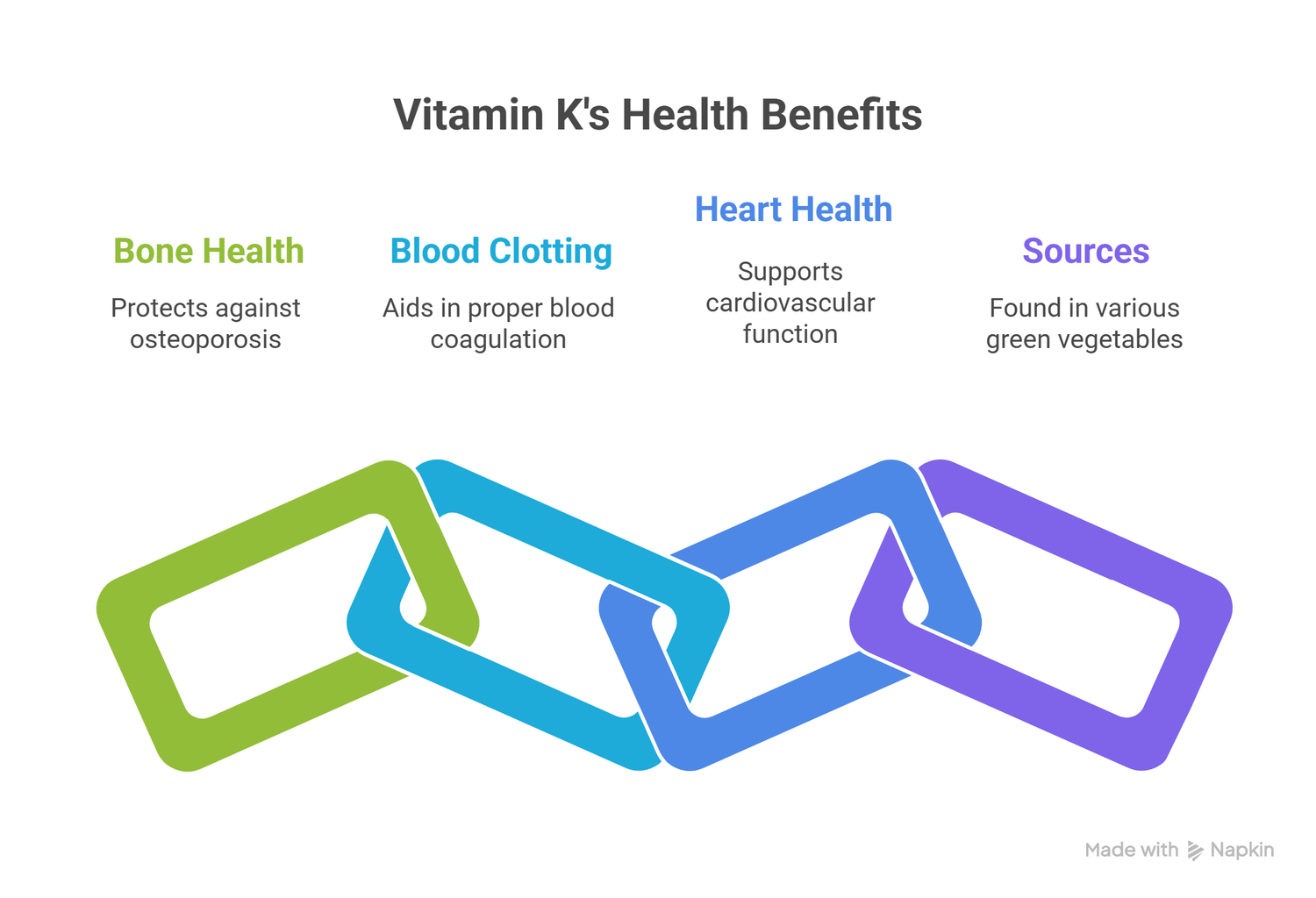
8. Vitamin B6 – Hormonal Balance and Mood
Vitamin B6 plays a crucial role in the production of neurotransmitters like serotonin and dopamine, which regulate mood. It’s also important for PMS symptom relief and overall hormonal balance.
Benefits:
Helps reduce PMS symptoms such as irritability and bloating
Supports brain health and mood regulation
Aids in hemoglobin production and energy metabolism
Sources:
Bananas
Chickpeas
Chicken and turkey
Potatoes
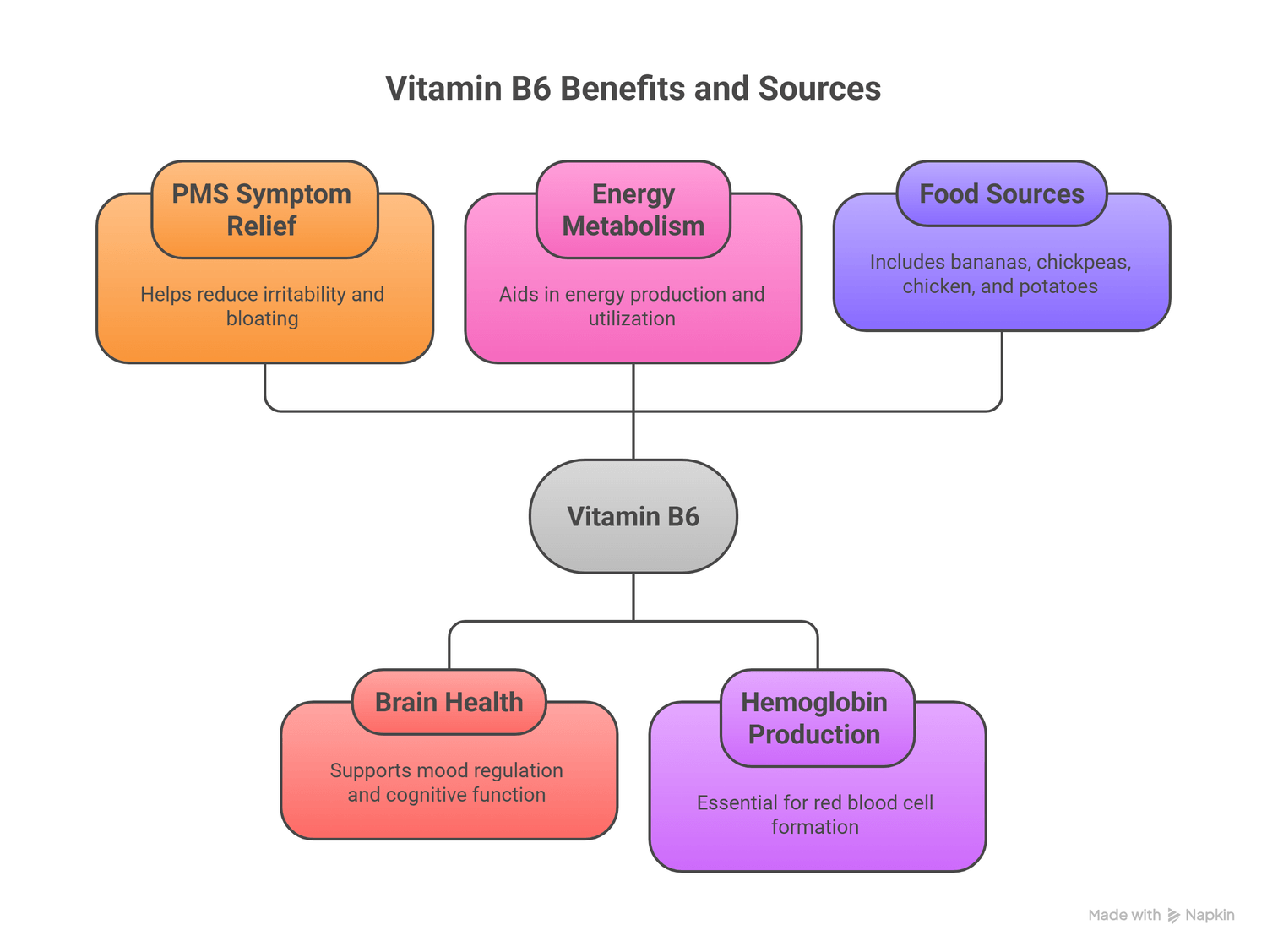
9. Biotin (Vitamin B7) – Beauty Vitamin
Biotin is often called the “beauty vitamin” because of its key role in hair, skin, and nail health.
Benefits:
Strengthens hair and nails
Promotes glowing, healthy skin
Supports carbohydrate and fat metabolism
Sources:
Eggs (especially yolk)
Almonds and walnuts
Sweet potatoes
Whole grains
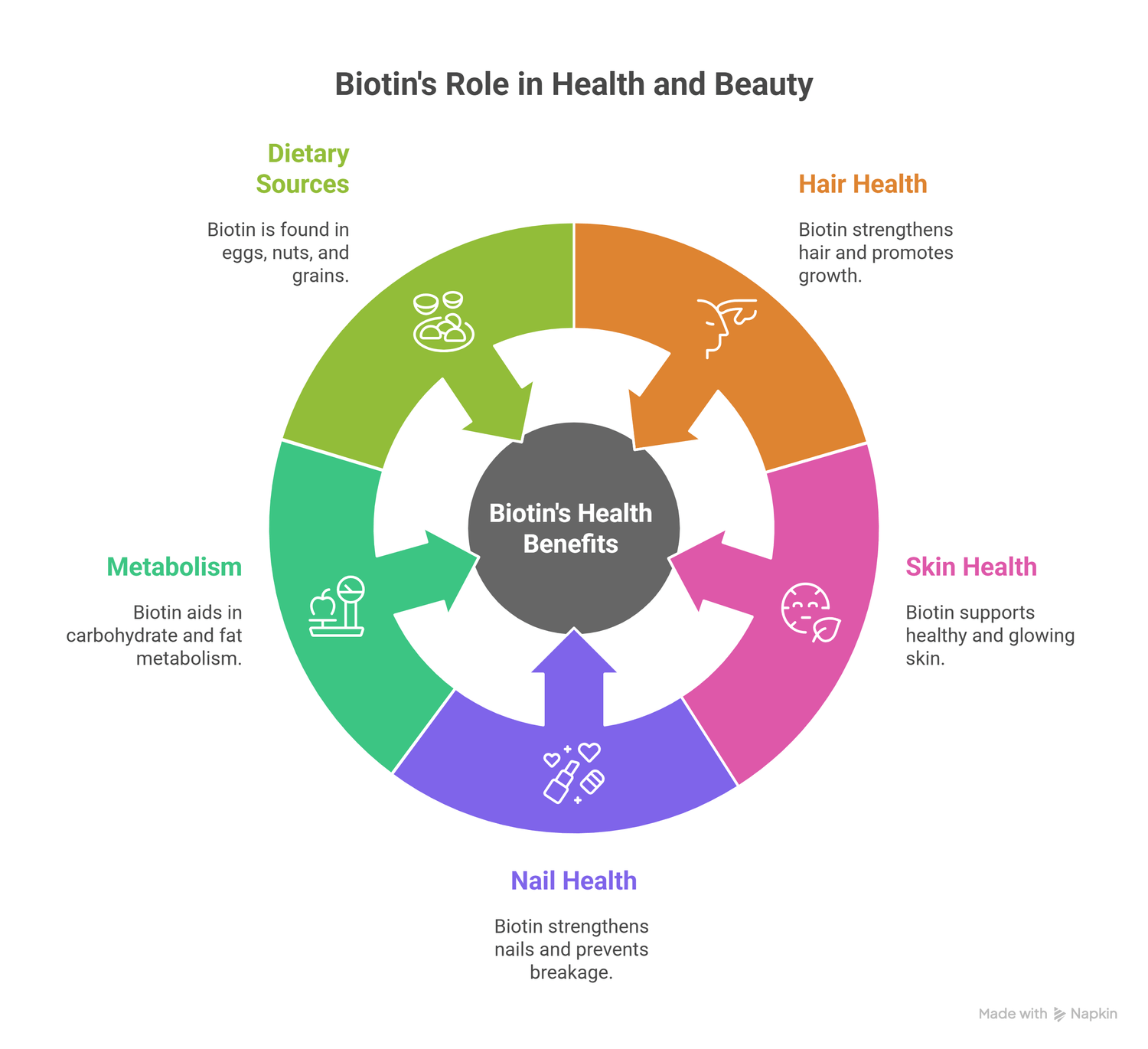
10. Omega-3 Fatty Acids – The Anti-Inflammatory Essential
Though not a vitamin, omega-3 fatty acids are essential nutrients that every woman needs. They play a powerful role in reducing inflammation and protecting long-term health.
Benefits:
Supports heart and brain health
Reduces inflammation, improving skin and hair quality
Helps ease menstrual pain and supports hormonal balance
Sources:
Fatty fish (salmon, mackerel, sardines)
Flaxseeds and chia seeds
Walnuts
Algal oil (plant-based supplement option for vegetarians/vegans)
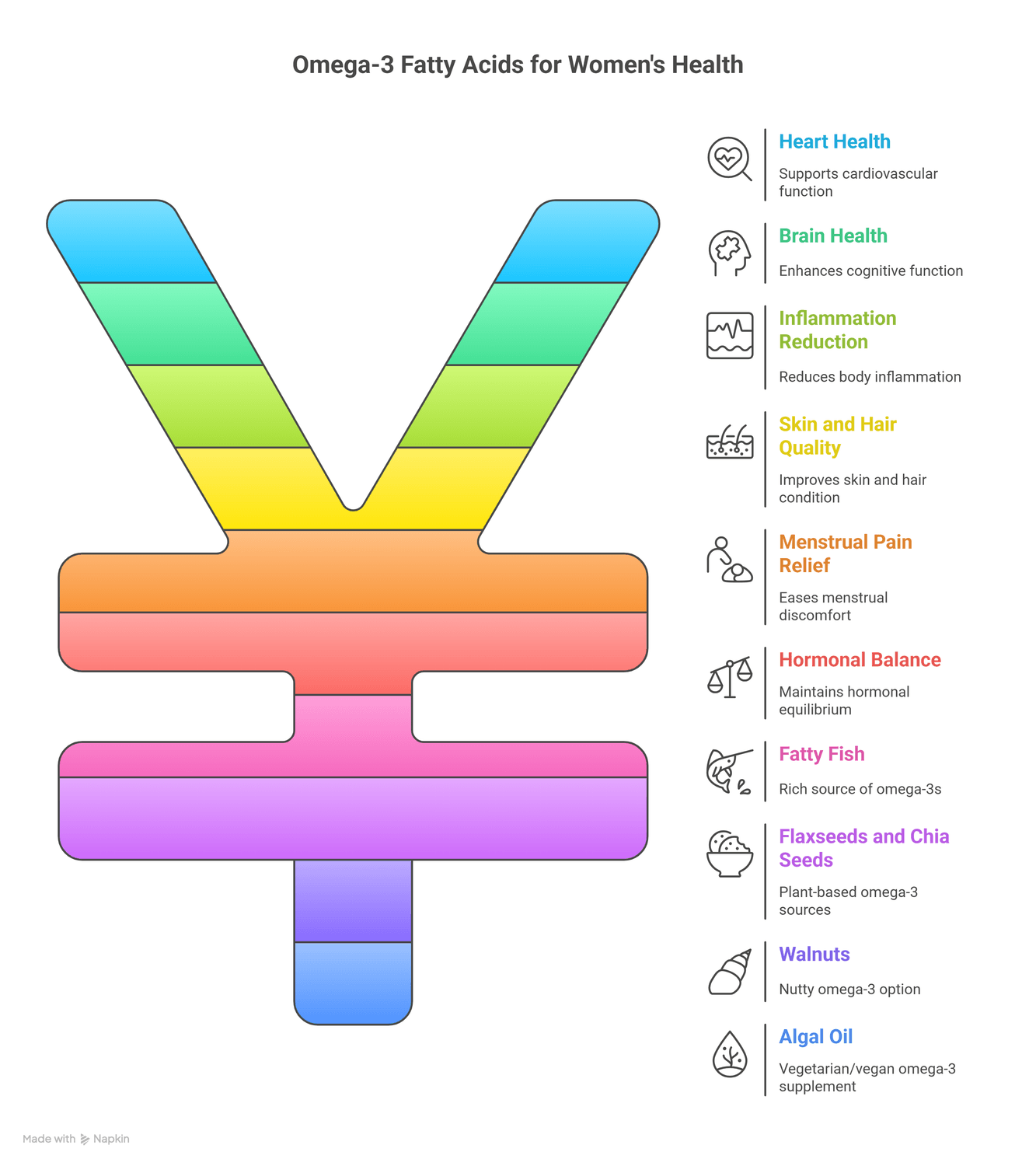
11. Calcium – Strong Bones and Women’s Wellness
Calcium is the most abundant mineral in the body and a foundation of bone health. Women are at higher risk of osteoporosis, especially after menopause, making calcium intake essential at every stage of life.
Benefits:
Builds and maintains strong bones and teeth
Supports muscle contraction and heart function
Plays a role in blood clotting and nerve signaling
Sources:
Dairy products (milk, yogurt, cheese)
Leafy greens (kale, bok choy)
Almonds
Fortified plant-based milk
Tip: Calcium works best when paired with Vitamin D and Vitamin K.
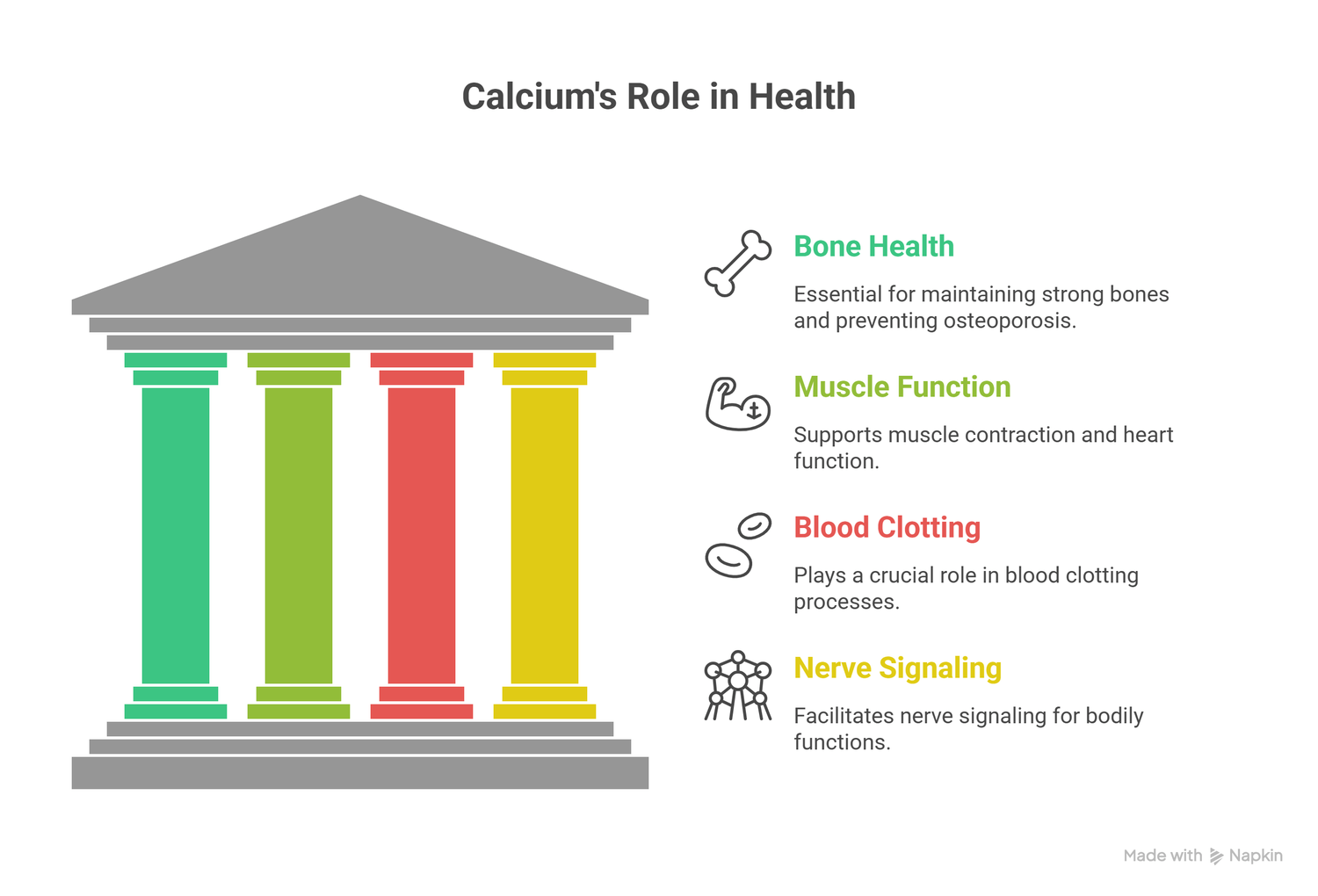
Magnesium is involved in over 300 biochemical reactions in the body. It helps regulate hormones, muscles, nerves, and energy production. Deficiency is common in women, leading to fatigue, cramps, and even mood imbalances.
Benefits:
Relieves PMS symptoms and muscle cramps
Promotes relaxation, better sleep, and stress relief
Supports heart health and bone strength
Helps regulate blood sugar and energy levels
Sources:
Dark chocolate (high-quality, 70%+)
Nuts and seeds (pumpkin seeds, almonds, cashews)
Spinach and other leafy greens
Whole grains
Tip:Magnesium works synergistically with calcium — balance between the two is crucial.

How to Ensure You’re Getting Enough Vitamins
Eat a balanced diet – Fill your plate with colorful fruits, vegetables, lean protein, and whole grains.
Check your blood levels – Regular health check-ups can help identify deficiencies early.
Consider supplements when needed – Some women may need extra support, especially during pregnancy, breastfeeding, or menopause.
Limit processed foods – These are often low in essential nutrients and high in inflammatory compounds.
Final Thoughts
Vitamins may be required in small amounts, but their impact on women’s health is life-changing. From boosting energy and immunity to supporting fertility and graceful aging, these nutrients form the foundation of wellness.
By focusing on a nutrient-rich diet and adopting healthy lifestyle habits, women can meet their body’s needs naturally. Where diet falls short, supplements can provide valuable support — always under professional guidance.
Taking care of your vitamin intake today is an investment in your future health and beauty.
